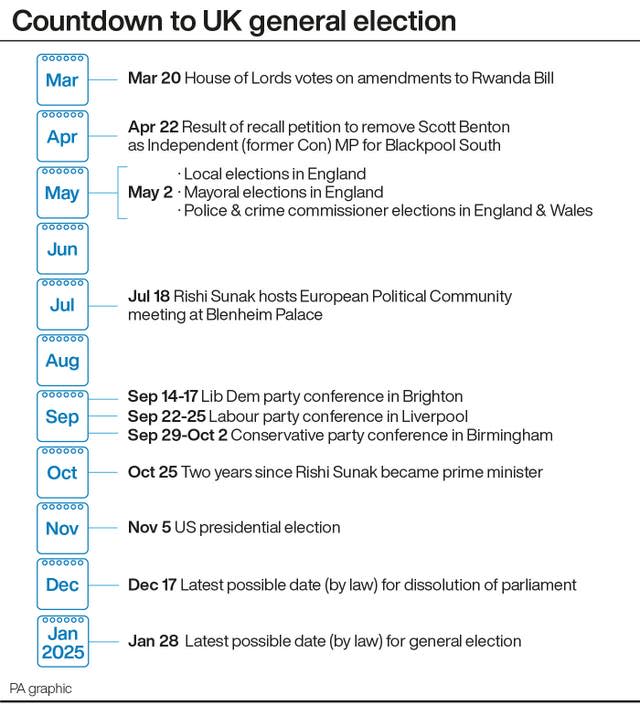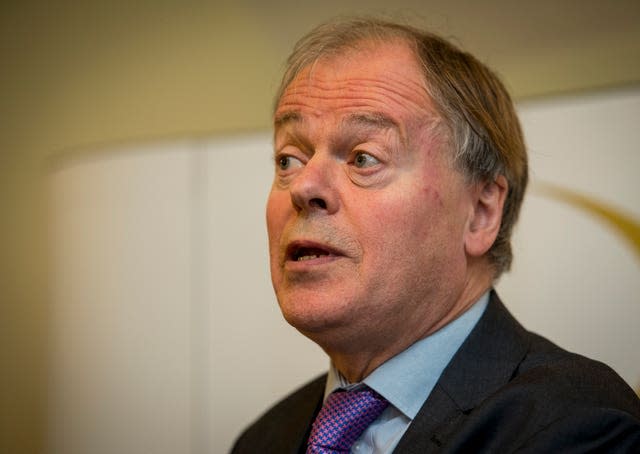Electoral registration ‘failings’ risk disenfranchising 8m voters, MPs warn

A “failing” electoral registration system risks disenfranchising eight million voters at the next election and presents a threat to the rights of the British electorate, MPs have warned.
An inquiry by the Levelling Up, Housing and Communities Select Committee also found issues with the introduction of recent electoral reforms, including the roll-out of mandatory photo identification for voters, which have prevented some people from having their say during local elections.
Chairman Clive Betts said the new requirements had been “tacked onto a Victorian era system” that was “creaking” and letting down voters.
He said it amounted to a “major and fundamental defect in our democratic system” that millions of UK citizens face being shut out at the next general election due to defects in the current voter enrolment process.
Prime Minister Rishi Sunak has indicated he will send the country to the polls to elect a new Westminster government in the second half of 2024, having ruled out coinciding it with local elections on May 2.
Chancellor Jeremy Hunt on Tuesday appeared to hint October is under consideration for a general election date, with January 2025 the deadline for holding a fresh contest.
All voters at the general election will need to show a form of photo ID at their polling station in order to cast a ballot, such as a passport, driving licence or blue badge.
Anyone without an acceptable form of ID will be able to apply to their local council for a special certificate.
In its interim report in June into the 2023 local elections, the Electoral Commission, the elections watchdog, found that 14,000 people – 0.25% – did not vote after being unable to show an accepted form of ID.
The cross-party committee, in its Electoral Registration report published on Thursday, said the list of accepted photo identification should be widened to include other forms, including emergency services passes and non-London travel passes.
It also called for the Government to move towards an automated opt-in voter registration system to help ensure that voters are not disenfranchised.
The MPs’ report said the elections watchdog had calculated that potentially as many as eight million people were not correctly registered at their current address and people may be registered twice inadvertently.
Giving evidence to MPs, the Electoral Commission told MPs that, should a UK general election be called today, “around 14% of the eligible population would not be able to vote”.
Mr Betts, the Labour chairman of the committee, said: “Elections are the cornerstone of our democracy and yet we are burdened by a system which is both ineffective and inefficient, where millions of people are disenfranchised because they are incorrectly registered or not on the electoral register.
“In the year of a general election, this is a damning indictment of the UK’s electoral registration arrangements and a threat to the rights of British voters.
“Our voter registration system is creaking. Recent changes such as voter ID have been tacked onto a Victorian-era system which is failing voters, political parties, and election officials.

“We need a major review of our election arrangements to boost voter registration and to ensure our elections are seen as credible and legitimate.
“It is a major and fundamental defect in our democratic system that many millions of UK citizens face being unable to make their voice heard at election time.”
The committee’s report recognises that certain groups, such as young people, renters, ethnic minorities and those in lower socio-economic groups were significantly less likely to be registered to vote.
MPs expressed concern at the pressures other changes ahead of the general election could place on the electoral registration system and the staff working within it.
They noted that there is often a surge in applications in the pre-election period when voting is at the forefront of voters’ minds.

The 41-page report warns that election officials may struggle to cope with these pressures in the run-up to the election, given that reforms contained in the Elections Act means there are now additionally up to 3.4 million British citizens living overseas who will be eligible to register to vote.
A Department for Levelling Up, Housing and Communities spokesman said: “We are committed to ensuring everyone can have their say in our democracy.
“Individual electoral registration has stopped fraud and ensured a more accurate register. The 2019 general election was contested on the largest ever electoral register.
“As recommended by the independent Electoral Commission, we have introduced identification for voting in person across Great Britain, mirroring long-standing arrangements in Northern Ireland.
“99.75% of English voters in the polling station cast their vote successfully at local elections in May last year and councils will provide free identification certificates to anyone who asks.”


